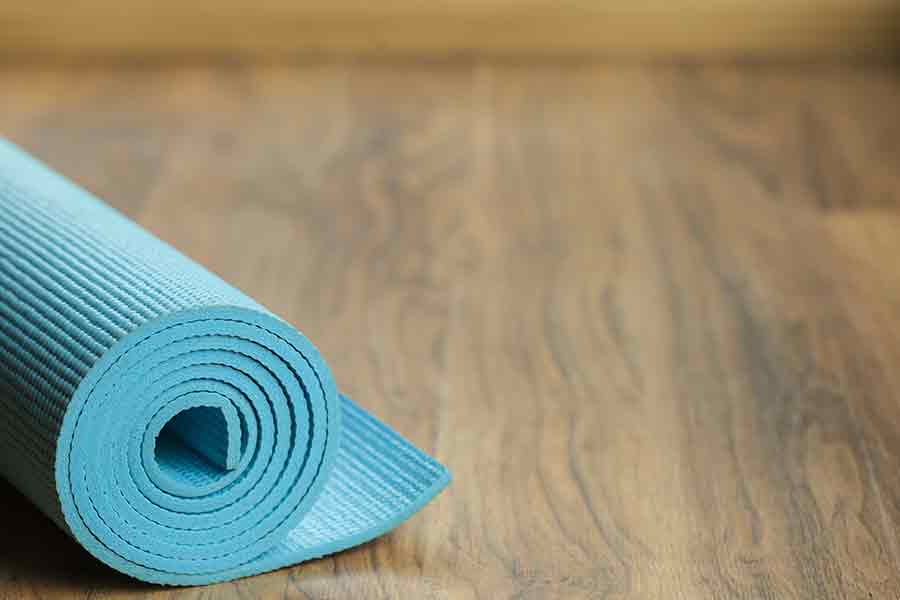Have you ever made a mistake while binge drinking that you later regretted? Are you suffering from chronic liver disease due to a lifetime of alcohol consumption? Are you experiencing blackouts after combining alcohol with opioids or street drugs? If you are finding it hard to quit despite the consequences, you might be addicted to alcohol.
Contact Two Dreams (504-510-2331) if you or a loved one has a problem with alcohol. We can help you figure out if you would benefit from our services, and/or if detox services are needed. Below are a number of recommendations we have for anyone looking to quit:
1. Announce Your Intention To Quit Drinking Alcohol
There is no better way to start the process than to make a formal announcement about it. This statement is an invitation for others to provide support and encouragement. It is a good time to ask for favors that will help you achieve your goals. This is also a good time to announce any decisions that you have made pertaining to quitting. For instance, you may need to mention, “I cannot join you guys at happy hour anymore.“
2. Avoid Negative Influences
It may be extremely difficult to resist drinking in the beginning, especially when exposed to others who enjoy drinking. Going to bars or parties where other people are drinking should be avoided for at least a few months or until you have established a way to respond appropriately to triggers.
One of our seven dimensions of treatment at Two Dreams, peer support, is especially helpful when learning to avoid negative influences. The community milieu is a crucial part of the treatment experience. Healthy bonding and being accountable to others that understand is vital in working through issues that keep people stuck in unhealthy patterns. Knowing that support is there for you when you need it is a comfort when working on difficult issues.

3. Find Ways To Spend Your Time that Do Not Involve Alcohol
Planning how you are going to spend time in the future is essential when quitting alcohol, so a considerable amount of time should be spent on this task. You should make a list of activities you can do that won’t put you at risk for relapse.
Many activities that involve physical exercise are good options; it is difficult to engage in physical activities, such as biking, while intoxicated and still have a good time. You can easily invite your friends to these types of events because they will also feel disinclined to drink and won’t entice you with alcohol while engaging in physical activities. Another upside is that none of you will regret spending time doing something good for your health!
You can also be more productive by finding a new hobby that requires high mental capacity. Instead of going to a bar to hang out, you can go to a coffee shop and focus on accomplishing your goals. For example, you can learn a new language, write a book, or start a blog discussing your experiences overcoming drug dependence.
You could also choose to do more outreach activities that are unlikely to involve drinking. For instance, you can engage in more church activities or volunteer for charities. The possibilities are endless, so spending time thinking about how you want to engage yourself is important.
Clients at Two Dreams are permitted to engage in a variety of free-time activities in-between scheduled events. Being located on the shores of the Outer Banks allows us the opportunity to offer beach activities such as surfing, swimming, fishing, and boating/jet-skiing. Clients with special interests such as skateboarding, painting, or cooking are encouraged to continue pursuing their passions during treatment; any desired activity we can accommodate (within reason) is fair game! Other common free time activities include basketball, table tennis, or hot tub lounging.

In terms of scheduled recreational experiences, every morning we take a sunrise walk on the beach. Five days a week we engage in some sort of physical activity such as yoga, tennis, basketball, and general free time at the gym. Every evening we participate in a relaxing scheduled activity, for example trips to community AA/NA meetings, movie nights, game nights, cookouts, etc.
Every weekend features a special off-site recreational experience such as bowling, shopping, going to the movies, or an activity specific to our prime location in the Outer Banks. In the past, clients have enjoyed trips to the aquarium, Jockey’s Ridge, the Roanoke Home of the Lost Colony, the Wright Brothers Memorial, and the Elizabethan Gardens. We have also gone on kayaking trips (during the day or during the night for bioluminescence tours), horseback riding excursions in Corolla, historical tours of the Whalehead Club, nature hikes through Nags Head Woods, and more.
4. Develop Strategies To Help You Resist Inducements to Use
It is best to avoid situations where alcohol or drugs are in use when in recovery. If you cannot avoid situations that include substances, be sure you have an exit strategy before it is needed.
One option is to eat well before attending an event. If your stomach is full, you will feel less of a need to consume anything in addition. If you go to a bar, you might intentionally bring an old ID or not bring money, so you cannot make any purchases. Chewing gum or drinking a nonalcoholic beverage may help you avoid the possibility of someone offering to purchase you a drink. You can even make up an excuse, like, “I can’t drink now because I’m going to work out afterward.”
At some point, it is going to be easier to say “no.” You should say it right now: “no, I don’t drink.” Remind yourself of the reason(s) you needed to quit in the first place.

5. Find Ways To Deal With Stress
It is important to develop coping mechanisms other than drinking in order to manage stress and other emotions. When you get angry, you could instead engage in physical activities like working out, playing racquetball, boxing, or running.
It’s helpful to have a person you can go to and discuss challenging coworkers or colleagues that test your limits. If there is no one you can verbally reach out to, you could try writing your feelings down on paper, which you could later share if the situation is still bothering you. Meditation and yoga are other alternatives that can help you reflect and relieve stress.
6. Reward Yourself and Recognize Your Accomplishments
“If I had a dime for every time someone asked me to…” is something you’ve probably heard people say. Well, you might actually want to take inspiration from that phrase. Place a dollar in a jar every time you overcome the urge to drink. You can even put in the amount of money you would have spent on the drink, so you can see how much money a life without alcohol is saving you.
With this money, you could buy yourself something special (like jewelry or a phone), something you will wear or use regularly. This item can serve as a reminder of the benefits of not drinking.
In addition to saving money, you might find that your health has also improved. You will feel less tired, and you will feel like you can concentrate better. Take the time to recognize all of the things you’ve achieved as a result of quitting alcohol. Remind yourself that you are happy that you quit and are satisfied with your new life.
7. Remind Yourself Regularly Why You Quit.
Something likely happened (perhaps even something tragic) that triggered your desire to quit drinking alcohol. Keep a reminder of why you quit handy so you can always refer to it during difficult times.

8. Surround Yourself With Supportive Friends.
In addition to your circle of friends, you might find comfort interacting with others who are facing the same challenges as you. Try connecting with one of your local Alcoholics Anonymous groups for support. These individuals understand exactly what you’re going through. They can give you insight into their experiences and help you find other ways to resolve ongoing dilemmas.
This insight is an important part of the second phase of treatment at Two Dreams. In this phase, our therapeutic staff helps guide clients “look in” to discover new aspects of themselves, and learn to honor their thoughts, feelings, and aspirations.
Transparency is essential in this phase of treatment. By exposing negative core beliefs, clients begin the process of forming a healthier sense of self. Benefits of this therapeutic work are a reduction in shame and guilt.
Introspection, which assists in connecting your thoughts to your feelings, is another important aspect of this phase. Clients typically share on a deeper level, and work on issues fueling their addiction. They learn to act and not simply react to their internal and external world, and begin an insight-oriented process of examining their thoughts and feelings behind their actions.
In this phase, clients become ready for the “looking out” phase of treatment when they have demonstrated an ability to acknowledge their addiction, commit to their recovery in a heartfelt manner, and reduce or eliminate the inducements to use in the future.
Source:
